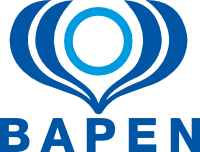Team Leader
- Dr Susan Hill, Paediatric Gastroenterology Consultant
Great Ormond Street Hospital for Children, London WC1N 3JH, Tel: 07753634455. Email: susan.catnach@whht.nhs.uk
Team Members
- Dr Jutta Koeglmeier, Paediatric Gastroenterology Consultant
- Anna Hughes, Intestinal Care, Nurse Specialist
- Donna Forbes-Penfold, Intestinal Care, Nurse Specialist
- Sarah Macdonald, Principal Dietitian
- Christianne Guillotte, Clinician’s Assistant
What was the problem you were trying to address?
Communication between the different health professionals involved in the care of a patient on treatment with long-term parenteral nutrition (PN) at home can be difficult.
The aim was to improve the care of patients with severe, long-term intestinal failure who are dependent on long-term parenteral nutrition at home for months or years through improving communication.
Professionals involved in home PN care are in several different locations (community, local hospital, specialist centre) and each group keeps their own records.
Communication between professional groups is usually via phone calls and letters. The aim was to improve care through using a patient-centred electronic communication system that allows instant access to all professionals involved in the patient’s care.
How did you create your project plan?
We worked with the creator of an electronic patient held medical record system ‘Patients know best’(PKB). The system is allowed to be hosted within the NHS secure network since it has the highest standards for security.
We identified the areas of patient care where improvement in communication was most needed and worked out how to best approach each need.
Key Actions
The following areas were worked on initially:
- Messages between specialist nurses and the patient and family
- Dietetic management between clinic appointments
- Uploading clinic letters with the eventual aim of substituting an electronic copy for the duplicate paper copies that are currently sent out
- Uploading results of investigations so that the patient can show them to any medical professional involved in their care
- Uploading prescription requests on to the system so that the patient can show their GP who can then issue the prescription
- Providing patients with clinical plans
Main Outcomes
- Improved communication between the patient and the various professionals involved in care
- Ease of access to records for patients and professionals
- Reduction in phone calls between patients and professionals
- Reduction in phone calls between professionals in the community and hospital
- Health professionals in the community can be copied into discussions between the patient and professionals at the specialist centre
- Patients surveyed would recommend the system to others
How are you going to maintain the improvement?
Continue developing ‘Patients Know Best’ e.g. direct link to radiological and laboratory data.
Introduce new patients to the system when training for discharge on treatment with parenteral nutrition at home so that it is part of their care package from the start.
Maintain a contract with PKB.
Tips for others planning similar projects
- Be proactive in encouraging patients and other professionals to use the system; they won’t always agree to immediately
- It can take time to change the team’s working ‘habits’ – even though the new way of working is less time-consuming
Top Quotes
“Patients may refuse treatment or fail to comply because they don’t feel they have ‘ownership’ of their disease and its management. Through using PKB they can feel fully involved in the decision making process.”


